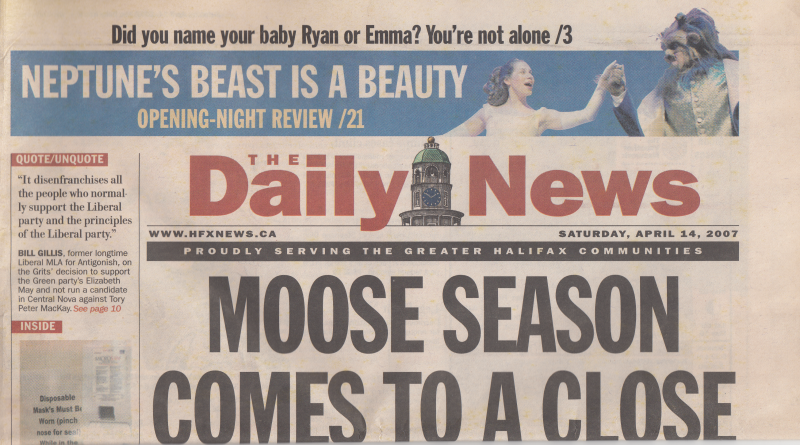Artists and the Chronicle Herald
The unionized reporters and editors of the Chronicle Herald have been on strike since January 23rd, and there is no end in sight. The Herald has consistently refused to bargain in good faith, rejecting every proposal put forward by the union. Instead, publisher Mark Lever has stated that the paper needs to “move on,” which is barely-disguised code for the employer’s desire to break the union.
Sure, the newspaper industry is changing, but the Chronicle Herald is attempting to place all of the burden for meeting those challenges (and answering for the mistakes management have made) upon the workers. That’s just not right.
The unionized reporters have since created their own free, on-line news outlet called Local XPress. The reportage and commentary that you’ll find there is thoughtful and professional, which stands in marked contrast to what you’ll find from the scab staff now being employed by the Chronicle Herald.
This dispute puts artists in particular in a difficult place.
On the one hand, we need to find an audience for their work, and the Chronicle Herald still has the biggest print media reach in the province.
On the other hand, the real arts reporters on strike – Stephen Cooke, Andrea Nemetz, Elissa Barnard – are good, hard-working people whom most of us have come to know and respect over the years. At one time or another, almost all artists in Nova Scotia have benefited from their hard work and good reportage, whether directly or indirectly.
Finally, there’s the longstanding tradition of artists standing together, and standing with others who are fighting against bullies. The Chronicle Herald is the clear bully here, trying to bust a legally constituted union (and employing some pretty heavy-handed tactics to achieve that aim).
As artists, we have a moral responsibility when a dispute like this happens to stand with the folks in the trenches.
At the end of the day, that means sacrificing our own interests for the greater good.
It means standing with the real reporters, who have for years stood with us.
It means not talking to the Chronicle Herald.
Read more

